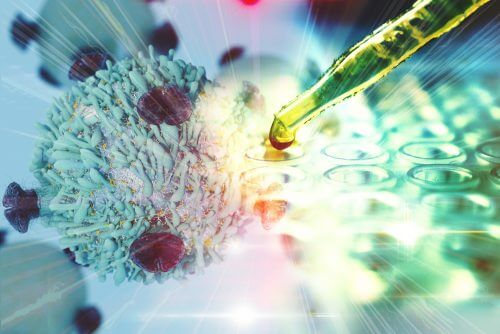Foundation d. Dan and Betty Kahn pledged to donate $20 million to expand the Weizmann Institute of Science's collaboration with the University of Michigan and the Technion

An innovative field in medicine, called "precision health", stems, among other things, from a vision according to which, in the future, robots will work alongside humans in searching for survivors of a natural disaster and monitoring bacterial infections in real time - something that will enable a better response to medical needs.
Foundation d. Dan and Betty Kahn of Michigan pledged to donate 20 million dollars in order to expand the research collaboration in this field between scientists from the Weizmann Institute of Science, the University of Michigan and the Technion - Israel Institute of Technology.
"We are grateful to the D Foundation. Dan and Betty Kahn for their visionary contribution," says Prof. Israel Bar-Yosef, Vice President for Resource Development and Public Relations at the Weizmann Institute of Science. "We look forward to starting to build a significant research program that will deepen the ties between these three leading institutions."
Since 2011, scientists from the Weizmann Institute of Science, the University of Michigan and the Technion have jointly won dozens of competitive research grants as part of the Michigan-Israel Partnership for Research and Education. The program, which is funded through donations, supports research, promotes innovation and fosters collaborations between these three institutions in a variety of fields such as biomedical sciences and engineering. Together with the new donation, the support given by the foundation to this partnership amounts to 25 million dollars.
The new donation is intended to support two large inter-university research projects, at the annual symposium named after D. Dan and Betty Kahn (which takes place alternately in Michigan and Israel) and several smaller projects. The announcement of the new donation was made as part of the seventh symposium, which took place this year on October 12 in Ann Arbor, Michigan.
"When it comes to issues with such broad social implications such as robotics and precision medicine, collaboration is essential," says Prof. S. Jack Ho, vice president for research at the University of Michigan. "By working together with our colleagues at two of the world's leading research institutions, we are able to accelerate the realization of the promising potential in these important research fields."
"In these days of the current era, international and interdisciplinary collaborations are essential for the future of science and engineering," says Prof. Boaz Golani, vice president for foreign relations and resource development at the Technion. "The support of Keren D. Dan and Betty Kahn enables three leading research institutions to combine forces for human well-being, all over the world."
"Kern D. Dan and Betty Kahn is very pleased to support this unique partnership, which grew out of the Kahn Symposium that began in 2011," says Larry Wolff, president of the foundation. "We see this partnership as a natural expression of Dan Kahn's vision and an opportunity for three of the most advanced research institutions in the world to achieve far-reaching research innovation that has implications for medicine, science and education. We hope that this donation will also encourage others to support this important issue."
One of the projects within the partnership is aimed at advancing the science of autonomous robotics through the discovery of new principles, the creation of new technologies and the development of innovations in autonomous systems. In another project, scientists from the three institutions plan to develop tools to improve the privacy and efficiency of the analysis of big data in the field of precision medicine.
In addition to the joint work on projects, the program also supports the exchange of scientists between the three institutions.
